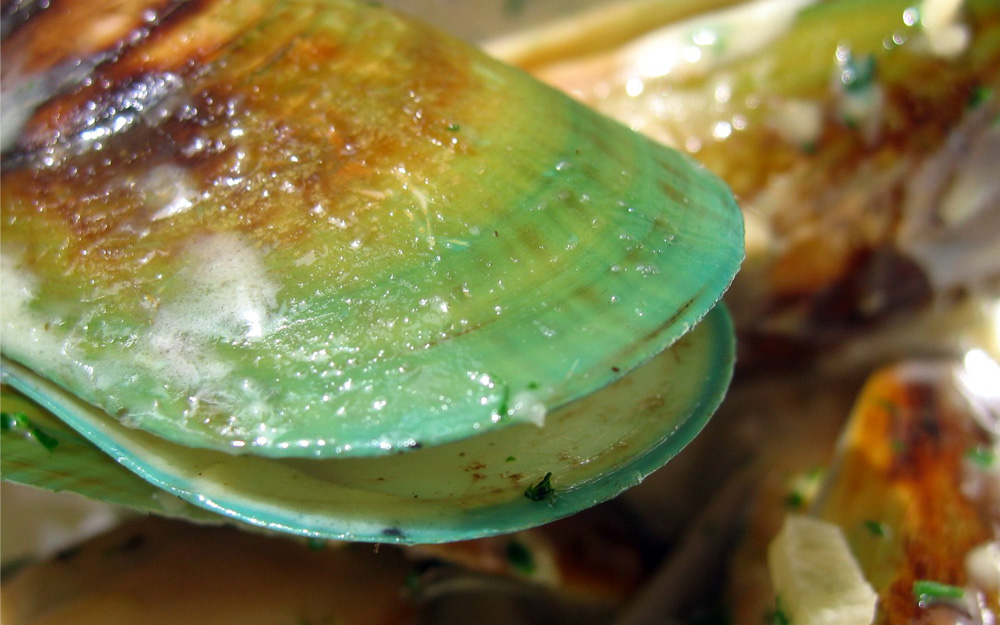Green-lipped mussels are bivalves that are native to coastal New Zealand, where they are an integral part of the traditional Maori diet. They have a green shell, which is how they got their name, and are rich in anti-inflammatory compounds. Green-lipped mussels can be eaten raw, cooked or as a dietary supplement, and are commonly farmed to protect the environment from potential damage. While green-lipped mussels are associated with a number of potential health benefits, Drugs.com emphasizes that further research is still needed as the clinical studies, while promising, are limited.
Rich Source of Protein
Green-lipped mussels are a good source of protein, with 18.8 grams per 100-gram serving of cooked mussels.
This provides 41 percent of the recommended dietary allowance of protein for women and 34 percent of the RDA of protein for men.
The U.S. Department of Agriculture recommends that you eat between 5 to 6 ounces of protein foods a day and get at least 8 ounces of your weekly protein intake from seafood.
Full of Iron
A 100-gram serving of cooked green-lipped mussels has 10.9 milligrams of iron,
providing over 100 percent of the RDA for people over the age of 50. It also provides 61 percent of the RDA for women
under the age of 50. Iron is essential for overall health as it helps your body produce red blood cells. It helps make hemoglobin and myoglobin,
two oxygen-carrying proteins. Insufficient iron can lead to iron-deficiency anemia, low energy levels and shortness of breath.
Natural Source of Vitamin B-12
An essential vitamin, vitamin B-12, like iron, is necessary for the production of red blood cells.
It also helps with DNA production and aids in your nervous system function. A 100-gram serving of cooked green-lipped mussels has 20 micrograms of vitamin B-12,
which provides over 100 percent of the RDA of vitamin B-12. The RDA ranges from 2.4 to 2.8 micrograms, with pregnant and breast-feeding women requiring more.
Extra vitamin B-12 is stored in the liver and is water-soluble, but there is little chance of vitamin B-12 toxicity from too much vitamin B-12, according to the National Institutes of Health.
High in Omega-3 Fatty Acids
Green-lipped mussels are naturally rich in omega-3 fatty acids, with over 40 percent of their total fat content coming from omega-3s.
Your body is unable to produce omega-3 fatty acids on its own, and seafood, such as green-lipped mussels, is one of the richest sources of these polyunsaturated fats.
Omega-3 fatty acids are associated with reduced inflammation and lowered chances of heart disease and arthritis. They also help with brain function.

